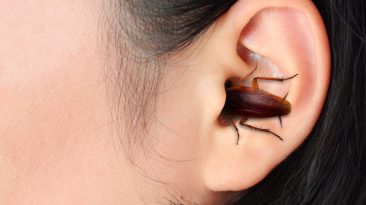Do you ever think human evolution is a little slow? What if we cranked up the speed and had you evolve 1,000 years in one day? In what ways would your appearance change? How would new technology shape your life? How would it change the way you think?
About 10,000 years ago, your ancestors spread to every continent on Earth, except for Antarctica. They had already started to farm, herd animals and settle down into villages. With all the changes in our living conditions since then, humans have evolved 100 times faster than at any other time.
In the last 150 years, we’ve grown 10 cm (3.9 in) and started living an average of 20 years longer. Fast forward another 1,000 years of human evolution, and could it be possible to live forever? If you jump-started your evolution and evolved 1,000 years overnight, all the changes might feel a little awkward.
For starters, you might become smaller. You would be living on an overcrowded planet with scarce resources. Our bodies might conserve more energy. This would come with a certain amount of growing pains. Or rather, shrinking pains. But you would wake up feeling better than you did the day before.
That’s because tiny nanobots inside your body would be enhancing your natural abilities. These nanobots would be small. About 1/100th of the width of a strand of hair. And they could monitor every aspect of your body’s health. If you have diabetes, for example, these little workers would regulate your glucose and insulin levels.
You could discover that compared to your unevolved friends, you are suddenly thinking faster. Your brain would benefit from advanced artificial intelligence that would be as fast, if not faster, than the human brain. With such advanced AI, you could do things that are impossible by today’s standards.
Maybe you could see frequencies outside of the visible spectrum because special cameras would enhance your eyes. You would be able to recognize faces and names at lightning speed. Your mind would have its own version of Facebook. Let’s call it a Brainbook. You could also find that you suddenly have a new grasp of languages.
Already, the number of languages spoken on the planet is diminishing due to globalization. So you could discover that you now speak Mandarin or Cantonese. These could be the standard global language in the future, considering that 1.39 billion people speak Chinese today. If you still understand me, that could mean that English has retained its position as a global language.
It could also be that you now understand and speak all languages. This would be thanks to advanced translation enhancers in your brain. You could talk to anyone, anywhere, without ever needing to learn the language. But if those enhancers in your brain stopped working, you would discover that maybe you aren’t that much smarter than your peers.
You could take a quick intelligence test to find out you aren’t even as smart as you used to be. This could be because your brain evolved to be dependent on all these new developments in AI. Without their assistance, simple tasks you perform at work could seem complex and challenging. The most dramatic change of all is one you wouldn’t notice right away.
But eventually you would discover that your life expectancy has extended to around 150 years. That would be thanks in some part to those nanobots monitoring your health. But it would also be due to genetic modifications that could be commonplace in the future. Your genes would be engineered to remove diseases like cystic fibrosis or Huntington’s disease.
All these new developments in your body would feel unique and special if they happened to you overnight. But with these changes occurring to humanity over the next 1,000 years, you would find that we would all start to look and act the same. Like clones of each other.
Sources
- “Q&A: Nanobots Could Explore Human Cells – But Their Size Is An Engineering Challenge”. Natalie Grover. 2021. ec.europa.eu.
- “This Is What Humans Will Look Like In 1,000 Years”. Bec Crew. 2018. sciencealert.com
- “Chinese to rise as a global language – Technology will help overcome barriers” 2020. sciencedaily.com.
- “Languages In The Future – What Will We Speak? – Focusing Future”. 2016. focusingfuture.com.
- “Diseases Of Affluence: Where They Occur And How To Avoid Them”. Amanda Penn. 2019. shortform.com.



























